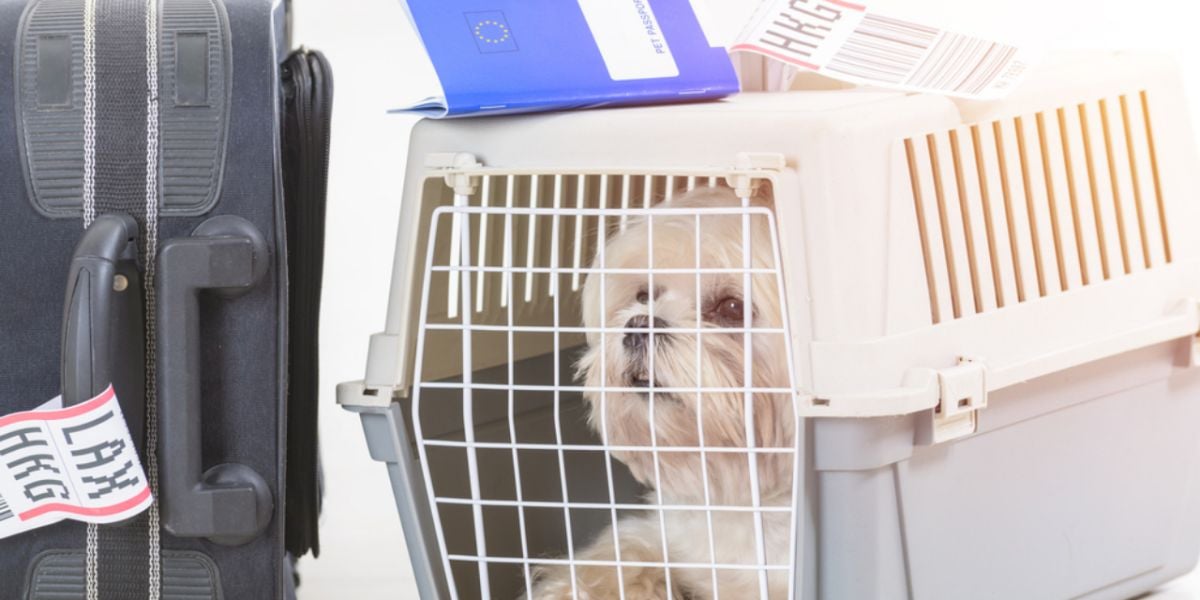
Are you wondering about how to bring your pet with you during your stay in Morocco? This is entirely possible as long as you follow certain procedures, and it is recommended to plan ahead.

Procedures
You must first check if the animal you wish to take with you is allowed in Morocco. If you come from a European country, your dog or cat will need to have a European passport. Your pet will also have a microchip which will be used for identification purposes and must have been vaccinated against rabies. They will also need a health certificate issued after a thorough medical examination by a licensed and recognised veterinarian at least ten days before arriving in Morocco. This certificate, which is valid for a period of three months, must include the name and stamp of the veterinarian as well as the date of issue.
To do so, you must indicate your willingness to travel with your pet during the reservation. For Royal Air Maroc, there are conditions to be allowed to travel with your pet:
- Pet shouldn't weight more than 5 Kgs (exception for guide dogs)
- Must be placed in a solid box, cage or basket providing the animal's aeration needs, not exceeding 115 cm (55 x 4 0 x 20)
- You must carry with you a medical and vaccination certificate for your pet, entry and transit permit
Keep in mind that these are general conditions applied by the Royal Air Maroc. For more information, check your airline company's conditions. The common types of pet you can bring are cats, dogs and birds. There are some breeds that are not allowed in the hold, such as:
Cats:
- British Shorthair
- Burmese
- Exotic Shorthair
- Himalayan
- Persian
- Scottish Fold
Dogs:
- Affenpinscher
- American Cocker Spaniel
- Boston Terrier
- Boxer
- Brussels Griffon
- Bulldog - all breeds
- Cavalier King Charles Spaniel
- Chihuahua (apple-headed)
- Chow Chow
- English Toy Spaniel
- Japanese Chin
- Lhasa Apso
- Mastiff – all breeds
- Pekingese
- Pit-bull – all breeds
- Pug – all breeds
- Shar-Pei
- Shih Tzu
- Tibetan Spaniel
Pet vaccination
Rabies is still current in Morocco. This is why it is compulsory to get your pet vaccinated against rabies when you leave Morocco to return to your country of origin. Your pet will also need to hold an anti-rabies certificate issued by a licensed Moroccan veterinarian.
Also, you need to be aware of other viruses in the country, including the parvovirus. It is a fast-developing and fatal type of gastroenteritis, infectious towards dogs only, especially puppies. If you see that your dog is suffering from prostration or vomiting, consult a veterinarian immediately. If it is not treated in time, the dog will suffer from bloody diarrhoea that can lead to dehydration. You are strongly advised to vaccinate your dog against this virus upon arrival in Morocco.
Caring for your pet in Morocco
It is very common to see stray cats on the streets of Morocco. Because the Prophet Muhammad had a cat, cats are important animals in Moroccan culture and are never harmed. Many people also have pet cats in their homes. Dogs are less common as pets, but not unusual. Birds and fish are also kept as pets in the house. Food and supplies for these animals can be found in most grocery stores and supermarkets. There are veterinarians in most cities as well as veterinarian pharmacies where you can find apomorphine and other drugs and get general pet care.
Good to know:
The roads in Morocco are not always a safe terrain for smaller pets. Around the neighbourhood and in parks are safe, but it won't be a good idea to take our pet anywhere with you in Morocco.
For more information, this page is written in French and includes all that you'll need regarding transporting your pet to Morocco (depending on the breed and your country of origin)
We do our best to provide accurate and up to date information. However, if you have noticed any inaccuracies in this article, please let us know in the comments section below.








